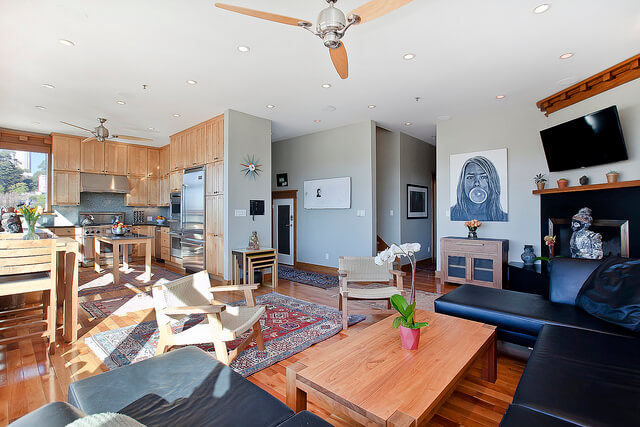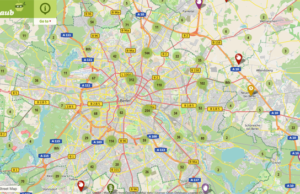
As of May 1, 2016, Berlin joins the list of international cities that have put restrictions on private property short-term vacation rentals through platforms such as Airbnb, Wimdu, 9Flats and other similar sites. Being one of the most popular tourist destinations in Europe—with roughly 30.2 million overnight visitors last year—this may create big effects for renters and rentees alike.
“Zweckentfremdungsverbot”
The new law—known as Zweckentfremdungsverbot, or “Law on the Prohibition of Misuse of Housing”—was originally passed in 2014, but included a two-year transition period that ended on April 30, 2016.
According to the regulation, owners in Berlin are now limited to renting only rooms (if they do not cover more than 50% of the total floor area of the home or apartment) instead of entire flats or apartments as short-term vacation rentals. According to CityLab in “February 2016 there were 11,000 full apartments for rent on Airbnb. By March, the number had dropped to 6,700.” And those that still plan to rent out their full apartments? Well, they can face fines of up to €100,000.
Additionally, landlords are also able to apply for official permits, which allow them to rent out their full apartment short-term. The application must include substantial evidence as to why they need to rent the space as short-term vacation rentals and face the possibility of rejection from the borough.
Apartment sharing seems like a win-win situation… what went wrong?
The concept of Airbnb—known as “collaborative consumption”—has been increasingly praised for utilizing sitting capital (an empty apartment in this case) to its maximum benefit. Landlords have the benefit of making more money on short term rentals versus long-term tenants and tourists have the benefit of staying in a private apartment, gaining a local experience and (generally) paying lower prices than hotels. This is especially true in countries like Germany in which rent laws are stricter than other European countries; generally limiting rent increases to 20% within three years. Short-term rentals often presented more profitable options for landlords.
The result, however, has created challenges for Berlin’s permanent residents looking for an affordable apartment. In the past years, vacation apartments, especially in the most desirable areas, have replaced many long-term rentals. According to the Guardian, between 2009-2014 rents in Berlin rose 56%, although still low at about €10 per square meter compared to other major European cities.
In addition to the increased public concern over lack of affordable apartments provoking the new law, many Berliners tolerance for loud, night-owl tourists is dwindling. And though not explicitly expressed, short-term rentals can reduce the “neighborhood feeling” that only comes when those staying in the neighborhood feel invested in its future.
Where to go from here?
Thus far, the new law is creating mixed reactions. Some feel that it is a necessary change in an attempt to give the city back to its permanent residents. According to Andreas Geise, Berlin’s head of urban development, the law was “a necessary and sensible instrument against the housing shortage in Berlin”.
Others, however, are very angry over the new regulation; claiming that it is merely serving the needs of the private hotel industry and making private residents pay for a failed housing policy. Additionally, in some cases, Airbnb and other private short-term vacation rentals platforms are an integral part of the landlord’s ability to pay their rent.
The city estimated that 1,000 new apartments should appear on the long-term rental market in the next months, and about 10,000 will be released in the long run. In addition, Berlin is building large amounts of new apartments—up to 50,000 in the next 10-15 years.
















